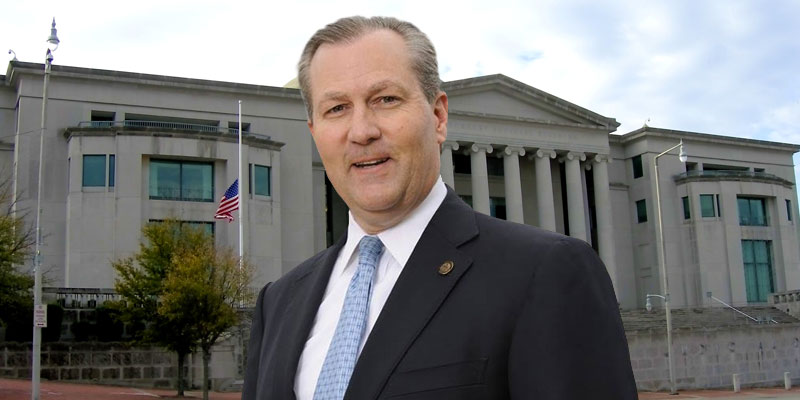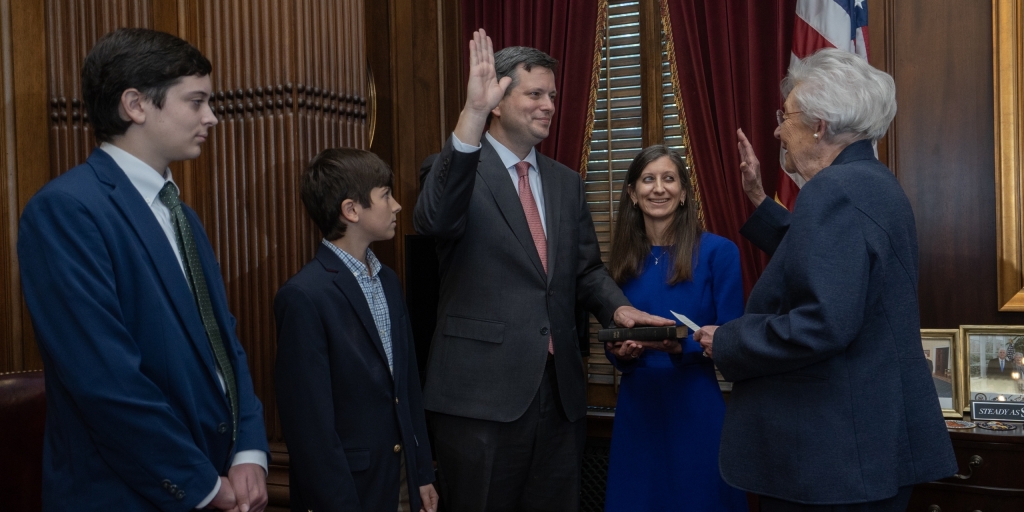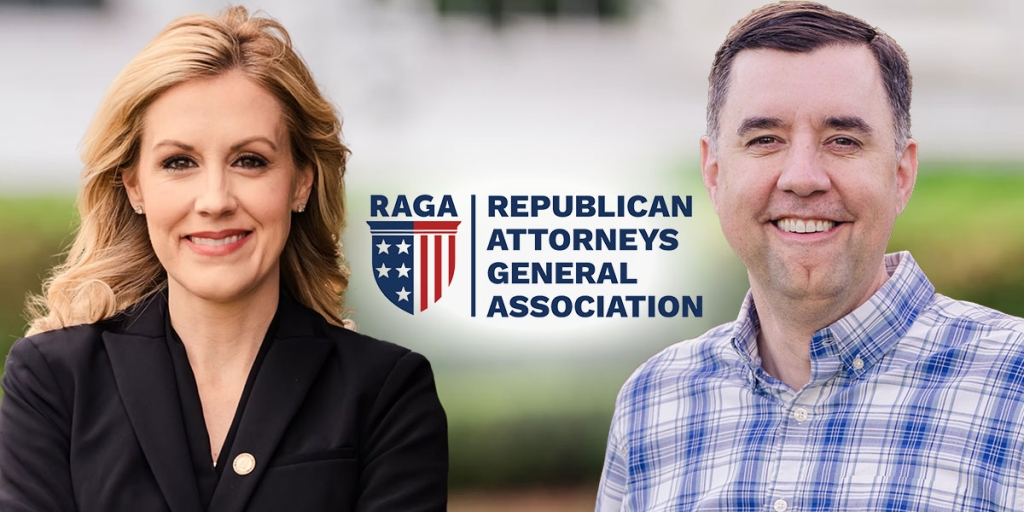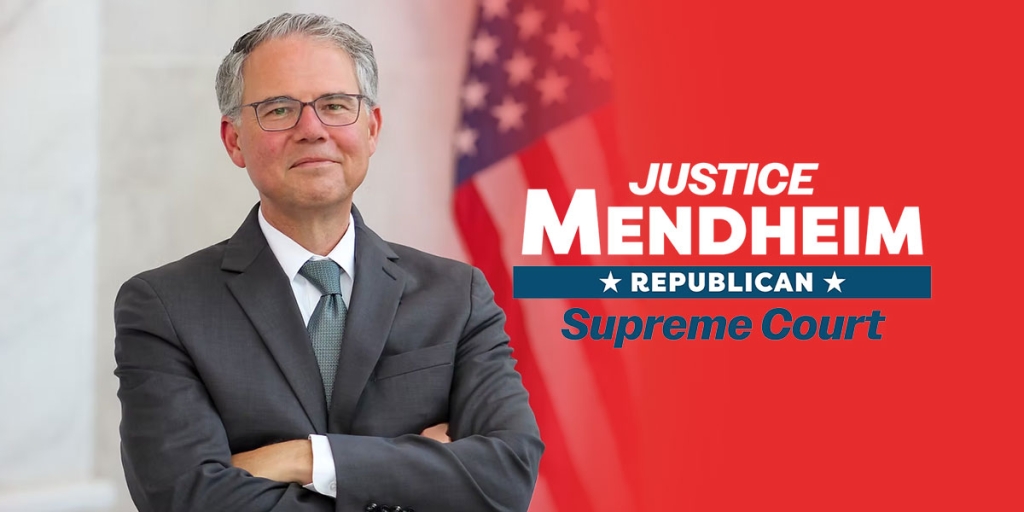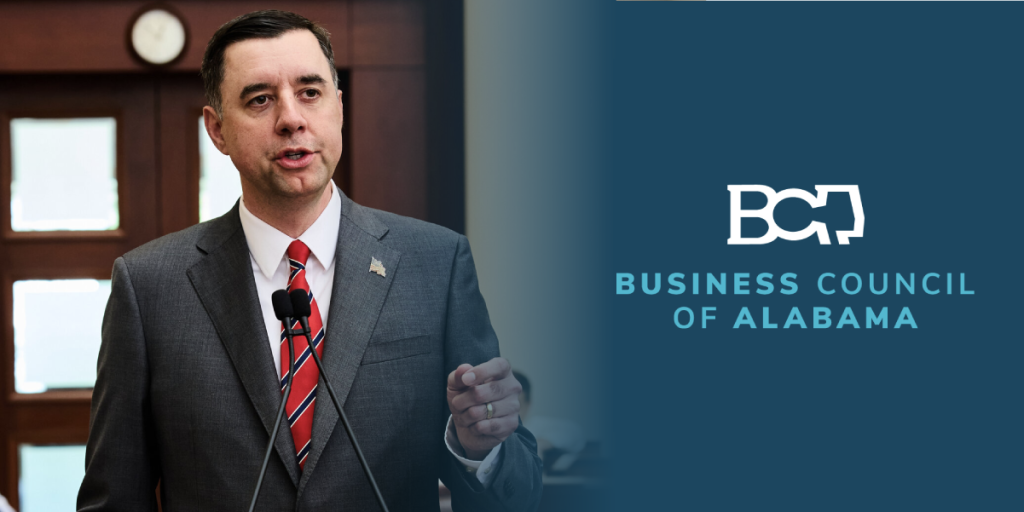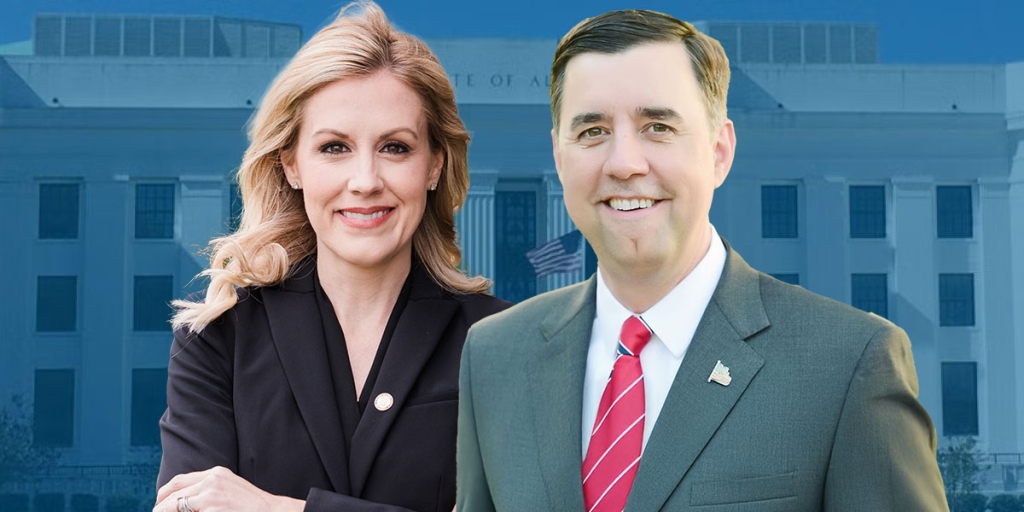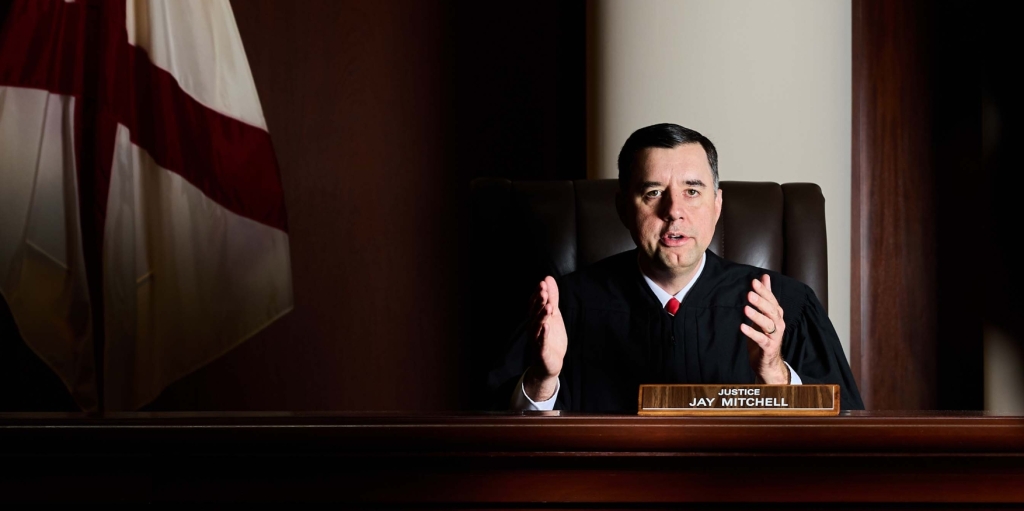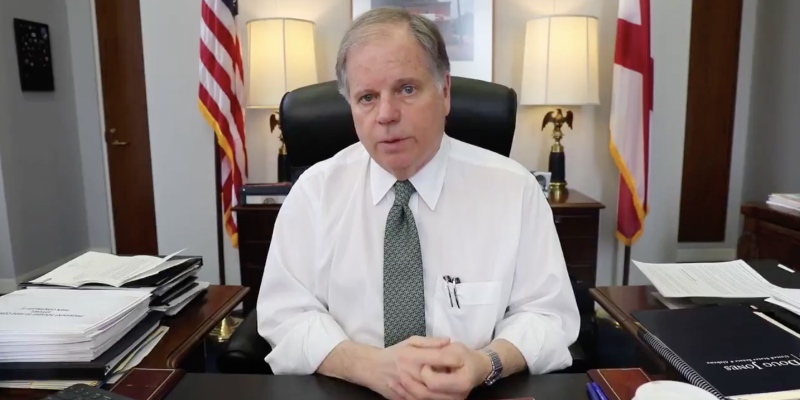The Supreme Court of Alabama on Friday morning released a ruling on the remaining convictions against former House Speaker Mike Hubbard (R-Auburn).
Hubbard was originally convicted in 2016 on 12 of 23 ethics charges brought against him by the Alabama Attorney General’s Office.
One of those 12 convictions was reversed by the Alabama Court of Criminal Appeals in August 2018. The Supreme Court last year granted cert on the remaining 11 convictions, meaning they would hear his appeal.
In an opinion written by Chief Justice Tom Parker and released on Friday, the Supreme Court upheld six of those convictions, reversing the remaining five.
Counts 6, 10, 11, 12, 13 and 14 were upheld, while counts 16, 17, 18, 19 and 23 were reversed.
Although half of the original convictions have since been tossed, Hubbard still faces four years in prison, which was the original length of imprisonment imposed by the trial judge.
Hubbard has been free on an appeals bond since his 2016 conviction. That appeals bond could be revoked by the trial judge and Hubbard ordered to jail as soon as Friday.
However, there will be a major question over whether Hubbard should be sent to prison while the coronavirus pandemic is ongoing, as correctional facilities are especially vulnerable to becoming hotbeds of spreading the virus. Facilities are thus attempting to limit contact with the outside world, including the introduction of new inmates, when possible.
Hubbard also still faces 16 years of probation following his imprisonment, as well as a $170,000 fine and $3,000 owed in a victims compensation assessment.
The Supreme Court’s full ruling can be accessed here.
UPDATE 10:30 a.m.
Here is a brief breakdown of how the Supreme Court evaluated the 11 remaining convictions against Hubbard:
Counts 16-19 and 23
These are the five counts on which Hubbard was convicted for soliciting or receiving a thing of value from a principal of a lobbyist.
Several investors in Hubbard’s business (Craftmaster) were associated with businesses or organizations which hired lobbyists. The State contended that prevented Hubbard from taking an investment from them.
On counts 16-19, the Supreme Court reversed conviction, saying the State failed to prove Hubbard did not pay full value for the Craftmaster investments and that, therefore, the State failed to prove the offense of receiving a thing of value from a principal.
Count 23, as well as the Supreme Court’s opinion on this count, has perhaps the most precedential value in this case. The crux of the matter was determining whether Will Brooke, a member of a leading trade association’s board and executive committee at the time, was a principal under the ethics law because the association (BCA) employed a lobbyist.
The Supreme Court determined in this count that “the BCA and the individual members of the BCA board are not the same legal person; they exist distinct from one another.” Further, the court decided that the term principal is not broad enough to encompass a member of a board in the absence of evidence that the board member was involved with the employ of the entity’s lobbyist.
Moreover, the Supreme Court ruled that being a principal or not is determined by the person’s activity rather than position. This should be judged on a case-by-case basis moving forward.
Count 23 was reversed.
Counts 6 and 10
These counts were based on Hubbard’s contracts with two companies, APCI and Edgenuity. Because he received payments under consulting contracts with the companies, Hubbard was convicted of receiving a thing of value from both.
There is a compensation exclusion to this provision for circumstances when it is clear the thing of value is provided for reasons unrelated to public service.
However, the Supreme Court upheld the counts and said the State provided evidence that Hubbard’s contracts were indeed related to his position as speaker. It was referenced repeatedly by representatives of those companies that being speaker in Alabama would open doors for them, etc., even if they meant out of state. There is no distinction in the statute in that regard. Furthermore, Hubbard’s vote on a budget which had a provision helping APCI also violated the ethics act, per the court.
Count 11
This count related to Hubbard’s consulting for Capitol Cups and using his official position for personal gain.
Capitol Cups was in his district, but Hubbard also had a $10,000 per month contract with them. He emailed Publix asking to set up a meeting related to Capitol Cups, and at the bottom of the email he had Speaker of the House and such in his signature.
This count was upheld.
Count 14
Hubbard was convicted on this county of using public property for private benefit. He allegedly used his chief of staff’s time to help get a patent for a company controlled by Robert Abrams of CSP Technologies. Abrams also owned Capitol Cups, which was paying Hubbard.
The Supreme Court upheld this conviction.
Counts 12 and 13
Hubbard was convicted on both of these counts of representing for compensation a business entity before an executive department or agency.
He allegedly obtained meetings on behalf of SiO2 Medical Products, another Abrams-owned company, while receiving payment from Capitol Cups.
Hubbard further had his legislative assistant set up meetings for Abrams with then-Governor Robert Bentley and Commerce Secretary Greg Canfield.
The court upheld both convictions.
Justices Mendheim and Stewart concurred with the opinion of the court. Parker, the author, concurred specially. Justices Bolin, Wise and Bryan concurred in part and concurred in the result in part. Justice Sellers concurred in part and dissented in part. Justices Shaw and Mitchell recused themselves.
UPDATE 10:35 a.m.
Governor Kay Ivey released a statement on the ruling.
“Today’s ruling from the Alabama Supreme Court is the culmination of four years of deliberation, and I support and accept their findings. As an elected official, our first priority is to be above reproach and avoid even the appearance of misconduct and abuse of office,” she stated.
“I support seeking clarity on our state’s ethics laws to ensure those who want to abide by them may not be unfairly targeted. However, let me be abundantly clear, I do not support weakening a system that is meant to hold our elected officials accountable. The rule of law must be upheld,” Ivey continued.
The governor concluded, “Even more so on this Good Friday, my thoughts and prayers are on Mike Hubbard’s family and upon our state as we move on from this unfortunate part of Alabama’s history.”
UPDATE 1:45 p.m.
Attorney General Steve Marshall released a statement and commended the members of the attorney general’s office who have worked on the case for years.
“Today, the Alabama Supreme Court delivered its opinion in the case of former speaker of the Alabama House of Representatives, Mike Hubbard,” Marshall said. “The Court’s decision reflects what we have argued from the beginning: Mike Hubbard’s actions were corrupt and betrayed the public trust. It is well past time for Mike Hubbard to serve the time he has so richly earned.”
This is breaking news and will be updated.
Sean Ross is the editor of Yellowhammer News. You can follow him on Twitter @sean_yhn




